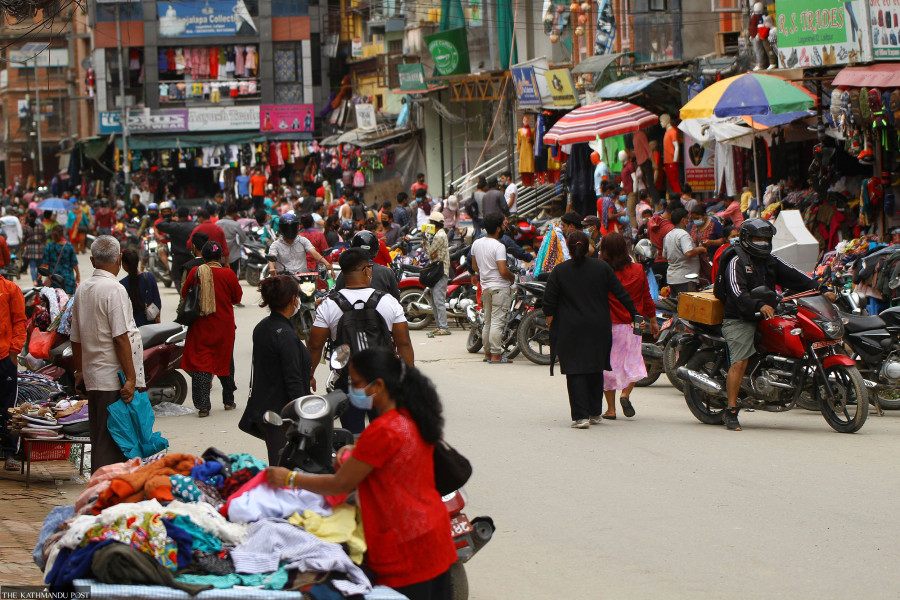Valley
Prohibitory orders extended by 10 days, odd-even rule for public vehicles removed in the Valley
Examinations can be conducted with no more than 25 examinees per exam hall.
Anup Ojha
The prohibitory orders in place in the three districts of Kathmandu Valley since April 29 have been extended by another 10 days from Tuesday to July 15 with the odd-even number rule for public transport removed.
A meeting of the Valley’s three chief district officers on Sunday decided to extend the prohibitory orders with further relaxation of restrictions. The odd-even number plate rule for public vehicles was widely criticised by transport entrepreneurs and health workers who said the rule would allow fewer such vehicles on the road leading to crowding in public transport and heightened infection risks.
But public transport vehicles will have to operate by following health safety protocols.
“We have lifted the ban on public vehicles in the Kathmandu Valley,” said Kali Prasad Parajuli, chief district officer of Kathmandu.
“Public vehicles can operate in the Valley by following the set protocols. We have also decided to allow schools to conduct examinations in person,” said Parajuli. He said other restrictions remain the same as announced last week.
As per the new decision, examinations can be conducted with no more than 25 examinees per examination hall.
The notice published by the District Administration Office, Kathmandu on Sunday states that public vehicles can carry passengers not more than their standard seating capacity and everyone including the driver, help and passengers must wear masks. Besides the mask, the driver and help must wear visors and gloves. Public vehicles should provide hand sanitisers and disinfect the vehicles daily. Similarly, Safa tempo and blue microbus can carry no more than nine passengers and should install plastic screen dividers along the aisle.
“The odd-even number rule for public transport vehicles was not a sensible decision because this caused crowding in public vehicles and increased the risk of infection,” said Yogendra Karmacharya, chairman of the Federation of Nepalese National Transport Entrepreneurs.
According to the federation, over 400,000 public vehicles have been garaged for the past two months due to the prohibitory orders.
Last week, two months after the introduction of the prohibitory orders in the Kathmandu Valley, the authorities had allowed public transport vehicles with more than 25 seats to operate on alternate days as per odd-even number plate rule and groceries, vegetable shops and department stores to operate until 6pm.
Just a week ago, in mid-June the three district administrators had eased prohibitory orders to allow pirate vehicles to run on odd-even number basis and business houses to operate on alternate days.
Jewellery shops, electronics stores and automobile shops are allowed to open only on Sundays, Tuesdays and Thursdays while shopping malls, clothing stores, gift shops, sports apparel stores and cosmetic shops can operate on Mondays, Wednesdays and Fridays.
Many shops and businesses, however, have been operating flouting the restrictions.
“Either they have to close our shops forever or let us operate,” said Sabina Shrestha, 37, who runs a gift shop at Kumaripati, Lagankhel. “How can we pay our rents if we are barred from doing our business? We had to shut our shops for two months but the government is not going to pay our rents or waive the taxes,” complained Shrestha. She accused the authorities of imposing impractical restrictions.
Many restaurants and eateries have also been ignoring the restrictions. Although they are permitted to run only takeaway and home delivery services, over the past few days they have started allowing dine-in customers.
“With the reopening of businesses and offices, public movement has increased and people prefer to eat sitting inside. How can we not allow them,” said the owner of Sandar MO:MO, an eatery selling Nepali meat dumplings, at Koteshwar.
“We had no business for two months, but we still have to pay the monthly rent, which is over 40,000. We cannot sustain by selling takeaways only,” he said.
Meanwhile, daily Covid-19 cases have been coming down after peaking on May 11 when the country confirmed a record 9,317 new infections. On April 29, when the prohibitory orders were imposed in the Valley, nationwide daily cases numbered 4,831.
On Sunday the country reported 1,042 new cases of Covid-19 with 27 fatalities and Nepal's coronavirus tally has reached 644,622. The Health Ministry’s data shows in the past 24 hours, 461 new cases were reported in the Kathmandu Valley. Of those, 342 cases were confirmed in Kathmandu, 88 in Lalitpur and 21 in Bhaktapur.




 11.84°C Kathmandu
11.84°C Kathmandu.jpg)














